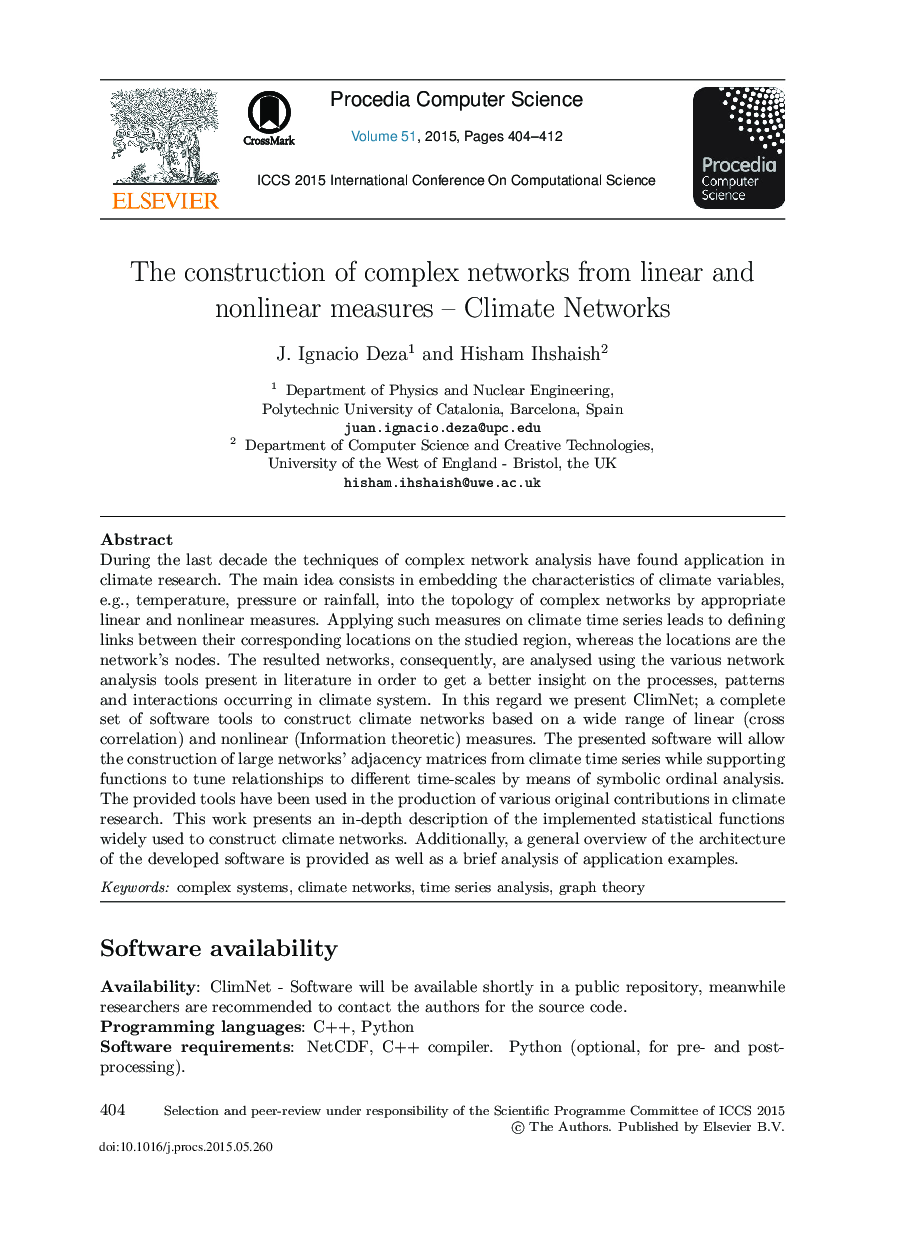| Article ID | Journal | Published Year | Pages | File Type |
|---|---|---|---|---|
| 485940 | Procedia Computer Science | 2015 | 9 Pages |
During the last decade the techniques of complex network analysis have found application in climate research. The main idea consists in embedding the characteristics of climate variables, e.g., temperature, pressure or rainfall, into the topology of complex networks by appropriate linear and nonlinear measures. Applying such measures on climate time series leads to defining links between their corresponding locations on the studied region, whereas the locations are the network's nodes. The resulted networks, consequently, are analysed using the various network analysis tools present in literature in order to get a better insight on the processes, patterns and interactions occurring in climate system. In this regard we present ClimNet; a complete set of software tools to construct climate networks based on a wide range of linear (cross correlation) and nonlinear (Information theoretic) measures. The presented software will allow the construction of large networks’ adjacency matrices from climate time series while supporting functions to tune relationships to different time-scales by means of symbolic ordinal analysis. The provided tools have been used in the production of various original contributions in climate research. This work presents an in-depth description of the implemented statistical functions widely used to construct climate networks. Additionally, a general overview of the architecture of the developed software is provided as well as a brief analysis of application examples.
